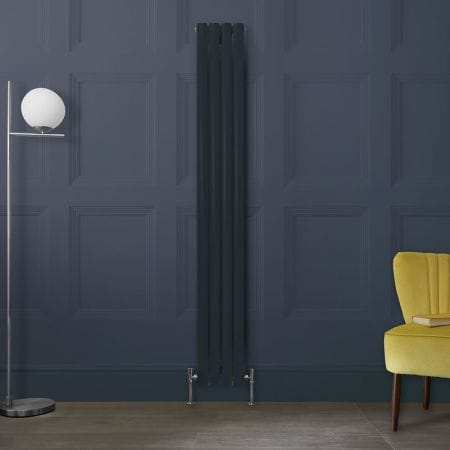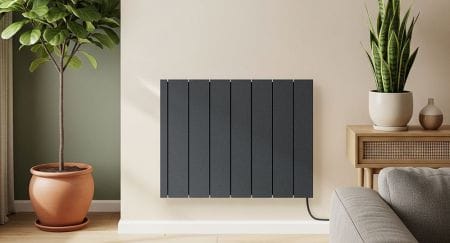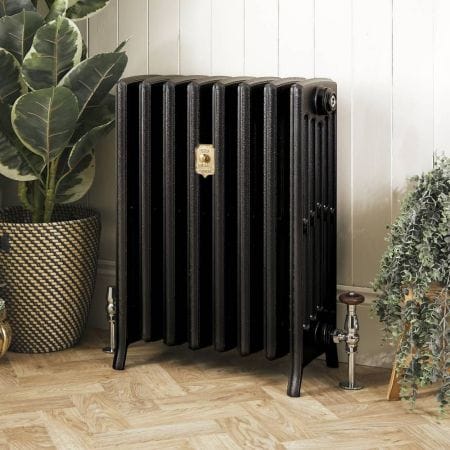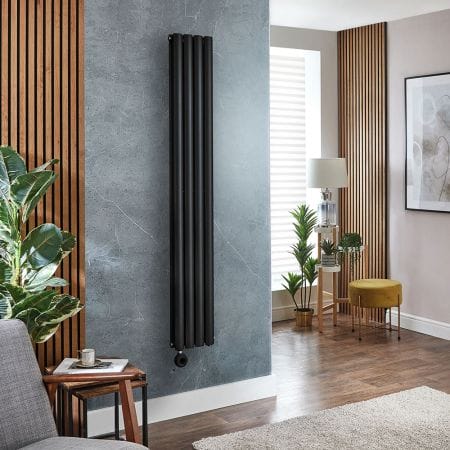Contents
ToggleWhat we'll cover...
A range of simple tips to follow to achieve a sustainable home heating setup and reduce your carbon footprint.
Sustainable heating tips for an eco-friendly home
Keeping warm in winter shouldn’t come at the cost of the planet – or your bank balance. But with traditional heating systems being some of the biggest energy guzzlers in your home, it’s no surprise that many homeowners are looking for greener, more sustainable ways to stay cosy.
From upgrading to eco-friendly radiators to using smart controls for ultimate efficiency, this guide will walk you through the best ways to reduce your heating carbon footprint and follow sustainable home heating practices while keeping costs down.
Why traditional heating systems waste energy
Let’s start with the bad news: traditional heating systems, while effective, aren’t exactly the best option as a sustainable home heating measure. Here’s why:
High energy consumption: Old boilers and inefficient radiators take longer to heat up and use more energy in the process.
Heat loss: Without proper insulation, a significant amount of heat escapes before you even get to enjoy it.
Lack of control: Many conventional systems lack smart technology, meaning energy is wasted heating empty rooms.
Carbon emissions: Gas and oil-based systems release large amounts of CO₂, contributing to climate change.
But fear not – there are plenty of ways to heat your home sustainably without sacrificing comfort.
The most eco-friendly radiator options and their benefits
The fact is that some radiators are far more efficient than others. If you’re looking to reduce your environmental impact and enhance home heating sustainability, here are some of the best energy efficient radiator options:
1. Aluminium radiators - The lightweight champion
Why they’re great: Aluminium heats up quickly, therefore aluminium radiators require less energy than traditional steel or cast iron radiators.
Eco-benefit: Lower energy use means reduced carbon emissions and a more efficient heating system.
2. Dual fuel radiators - The best of both worlds
Why they’re great: Dual fuel radiators can run on central heating in winter and electricity in summer, reducing overall energy waste.
Eco-benefit: Allows you to optimise energy usage throughout the year.
3. Electric radiators - Perfect for renewable energy homes
Why they’re great: When powered by renewable electricity (solar or wind), electric radiators are a 100% sustainable heating option.
Eco-benefit: No reliance on gas or fossil fuels.
Renewable heating solutions: Heat pumps, solar and biomass
Heat pumps extract heat from the air or ground and transfer it into your home, requiring far less energy than traditional systems. They are one of the fastest rising sustainable home heating solutions on the market.
1. Heat pumps - Efficiency at its best
Energy saving potential: Can be 300-400% efficient compared to conventional boilers.
Eco-benefit: Uses renewable energy and reduces reliance on fossil fuels.
2. Solar heating - Free heat from the sun
Solar panels can power electric radiators or contribute to a hybrid heating system.
Energy saving potential: Can reduce household heating bills by up to 60% in the right conditions.
Eco-benefit: Completely clean and renewable energy source.
3. Biomass boilers - Sustainable fuel for your home
Biomass systems use organic materials (like wood pellets) to generate heat.
Energy saving potential: More efficient than coal or oil-based heating.
Eco-benefit: Carbon-neutral when using sustainably sourced biomass.
Using smart controls to cut energy consumption
Smart heating technology isn’t just convenient – it’s one of the easiest ways to improve efficiency and cut waste, making it an ideal option for sustainable home heating.
1. Smart thermostats - The brain of your heating system
Why they’re great: A smart thermostat will learn your schedule and adjust temperatures automatically to reduce unnecessary heating.
Eco-benefit: Reduce heating energy use by up to 15% per year.
2. Smart TRVs - Zonal heating for maximum efficiency
Why they’re great: Allow you to control individual room temperatures, so you’re not heating spaces you don’t use.
Eco-benefit: Reduce energy waste by up to 30%.
3. Programmable timers and remote access - Heat when you need it
Why they’re great: Set schedules to match your lifestyle, reducing unnecessary heating when no one’s home.
Eco-benefit: Less wasted energy, lower carbon footprint.
Insulation and heat retention: How to reduce heating loss
Even the most efficient heating system won’t help if your home leaks heat like a sieve. Proper insulation is key to maximising efficiency and creating a sustainable home heating environment.
1. Wall and roof insulation
Energy saving potential: Reduce heat loss by up to 35%.
Eco-benefit: Less energy required to maintain warmth, reducing emissions.
2. Draught-proofing measures
Why it matters: Small gaps in windows and doors let cold air in and warm air out.
Eco-benefit: Draught-proofing can save up to £60 per year on heating bills.
Heat your home, not the planet
Sustainable home heating isn’t just about reducing emissions – it’s about cutting costs, improving efficiency, and future-proofing your home. Whether you switch to eco-friendly radiators, invest in smart heating controls, or go all-in with renewable heating solutions, every step makes a difference.
A greener, more efficient home is within reach. Now, let’s turn down the waste and turn up the sustainability! Let us know how you opt to make a sustainable home heating switch in the comments or by reaching out to us on Instagram, Facebook or X.
John is a Research Specialist for the Best Heating Advice Centre, where for over nine years he has dedicated himself to demystifying home heating for our customers. He specialises in creating clear, data-driven guides and how-to articles by collaborating directly with our team of certified heating experts and product engineers.
His work, built on a foundation of journalistic research, has helped millions of readers make confident and informed decisions about their home heating. When he’s not breaking down the heat output differentials from radiators to heated towel rails, John fancies himself as a fine football and music connoisseur.







